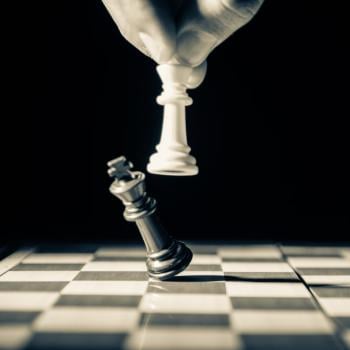By Talia Davis
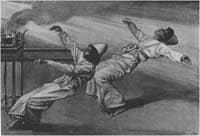 This is the best portion... okay, maybe second best... if you get past the first part where two of Aaron's sons die... but really, this is a cool one! Let's get through the sad stuff first.
This is the best portion... okay, maybe second best... if you get past the first part where two of Aaron's sons die... but really, this is a cool one! Let's get through the sad stuff first.
This is the end of the whole Mishkan (Tabernacle) building talk. Finally G-d consecrates the Mishkan and Moshe tells Aaron to assemble calves, rams, one goat, one lamb, one ox, and a meal offering for the korbanot (sacrifices). Aaron gets this going and the people of Israel are excited. But just then, two of Aaron's sons walk over with pans of lit incense and put on the altar an "alien" fire. It wasn't an offering that G-d asked for, and G-d sent a fire to "consume" them and they died. One theory on this is that it happened because Nadab and Abihu were partaking of the wine a bit too liberally. Aaron, who had just watched his sons die, was sad and about to lose it in front of the people. Moshe says to Aaron, "This is what G-d meant when G-d said: ‘Through those near to Me I show Myself holy, and gain glory before all the people.'" Aaron pulled himself together and G-d said to Aaron and his two remaining sons that they must not drink wine or other mood-altering substances when they were entering the Tabernacle because they must distinguish between the sacred and profane.
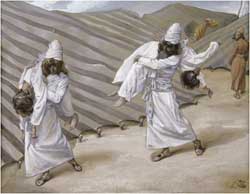 The rest of this section is interesting. It is all about this first day of korbanot (sacrifices). It shows that not even Aaron and his sons were perfect and they needed some reminders of how to do all of the complex rituals and sacrifices the first time.
The rest of this section is interesting. It is all about this first day of korbanot (sacrifices). It shows that not even Aaron and his sons were perfect and they needed some reminders of how to do all of the complex rituals and sacrifices the first time.
The last part of this portion is about kashrut. This is the cool part. See the video at the end of this article to have a nice, fun education in what is kosher and what isn't. So, why keep kosher? Well, in Leviticus 11:45, Hashem (G-d) says: "You shall be holy for I am holy." There are a lot of different ways to take this. But let's think about it this way... in that time there were Jews and pagans (essentially, totally not arguing here about what pre-dates Judaism). G-d was encouraging us to stand separately from the others. Just like G-d is kadosh (holy, sacred, special, separate, different), G-d wanted us to be kadosh and not be confused with our non-Jewish neighbors. Therefore, we have to eat with intention. Kashrut is intention. When you keep kosher you can't just eat anything. You have to think about it first.
Basic laws of kashrut... here we go! Let's start with land animals: They must have split (or cloven) hooves and chew their cud.
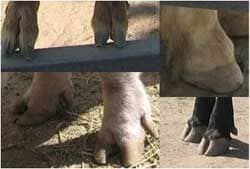
What kind of animals do that? Cows, goats, sheep, antelope, deer, buffalo. (Okay for the record, a giraffe is a kosher animal but there are other things that go into kashrut. Like when you slaughter the animal, it musn't feel any pain and must die instantly, so you have to slice its neck at the right spot... and we don't know where the right spot is on giraffes...)
What kind of animals don't have cloven hooves and chew their cud? Pigs (cloven hoof but don't chew the cud... tricky, I know), camel, and rabbit (no cloven hoof), elephant, dog, cat, fox, lion...
Water animals: All fish are good... as long as they have fins and scales. Makes sense right? Guess who fits right in: Salmon, tuna, anchovies, bluefish, carp, tilapia, cod, flounder, mackerel, pike, sea bass, trout, etc... lot's o' fishies! (If you are stuck and aren't sure what fishie to eat, get the Kosher Fish iPhone app!
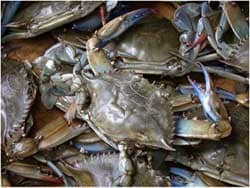 But... there are some popular water animals that don't make the cut: Eel, crab, dolphin, catfish, clam, lobster, shrimp, scallop, seal, shark, squid, starfish...
But... there are some popular water animals that don't make the cut: Eel, crab, dolphin, catfish, clam, lobster, shrimp, scallop, seal, shark, squid, starfish...
